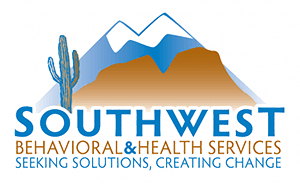10-12 Grade
Grades 10-12
When it comes to drugs, teens are a savvy bunch. Drugs and messages about living drug-free have been part of their lives for years. They can make distinctions not only among different drugs and their effects, but also among trial, occasional use and addiction. They've witnessed many of their peers using drugs — some without obvious or immediate consequences, others whose drug use gets out of control. By the teen years, kids have also had to make plenty of choices of their own about drug use - whether they should give in to peer pressure and experiment with drugs, or go against some of their peers and stay away from drugs and drinking.
Here are 6 tips to help you help your teen continue to live a healthy, drug-free life:
- Don’t speak generally about drug- and alcohol-use— your older teen needs to hear detailed and reality-driven messages. Topics worth talking about with your teen: using a drug just once can have serious permanent consequences; can put you in risky and dangerous situations; anybody can become a chronic user or addict; combining drugs can have deadly consequences.
- Emphasize what drug use can do to your teen's future. Discuss how drug use can ruin your teen's chance of getting into the college she's been dreaming about or landing the perfect job.
- Challenge your child to be a peer leader among his friends and to take personal responsibility for his actions and show others how to do the same.
- Encourage your teen to volunteer somewhere that he can see the impact of drugs on your community. Teenagers tend to be idealistic and enjoy hearing about ways they can help make the world a better place. Help your teen research volunteer opportunities at local homeless shelters, hospitals or victim services centers.
- Use news reports as discussion openers. If you see a news story about an alcohol-related car accident, talk to your teen about all the victims that an accident leaves in its wake. If the story is about drugs in your community, talk about the ways your community has changed as drug use has grown.
- Compliment your teen for the all the things he does well and for the positive choices he makes. Let him know that he is seen and appreciated. And let him know how you appreciate what a good role model he is for his younger siblings and other kids in the community. Teens still care what their parents think. Let him know how deeply disappointed you would be if he started using drugs.
Drugs in your teen's world can include:
Tobacco, Alcohol, prescription drugs such as Ritalin, Oxycontin, Vicodin, Valium and Xanax, Inhalants, Marijuana, Ecstasy, Cocaine/Crack and Mushrooms
Scenario
Your high-schooler comes home smelling of alcohol or cigarette smoke for the first time.
What to Say
“The response should be measured, quiet and serious—not yelling, shouting or overly emotional,” says parenting expert Marybeth Hicks. “Your child should realize that this isn’t just a frustrating moment like when he doesn’t do a chore you asked for; it’s very big, very important, and very serious.”
Say, “I’m really upset that you’re smoking/drinking. I need to get a handle on how often this has been happening and what your experiences have been so far. I get that you’re worried about being in trouble, but the worst part of that moment is over—I know that you’re experimenting. The best thing you can do now is really be straight with me, so for starters, tell me about what happened tonight…”
Scenario
Your teen has started to hang out with kids you don’t know—and dropped his old friends.
What to Say
It seems like you are hanging with a different crowd than you have in the past. Is something up with your usual friends? Is there a problem with [old friends’ names] or are you just branching out and meeting some new kids? Tell me about your new friends. What are they like? What do they like to do? What do you like about them?


